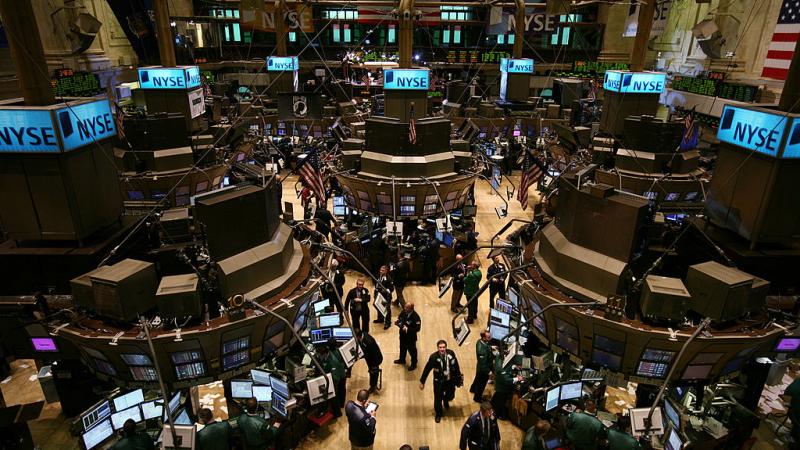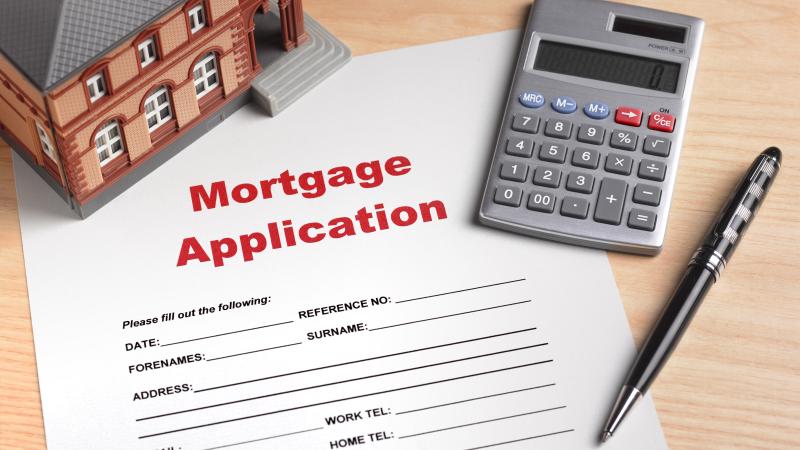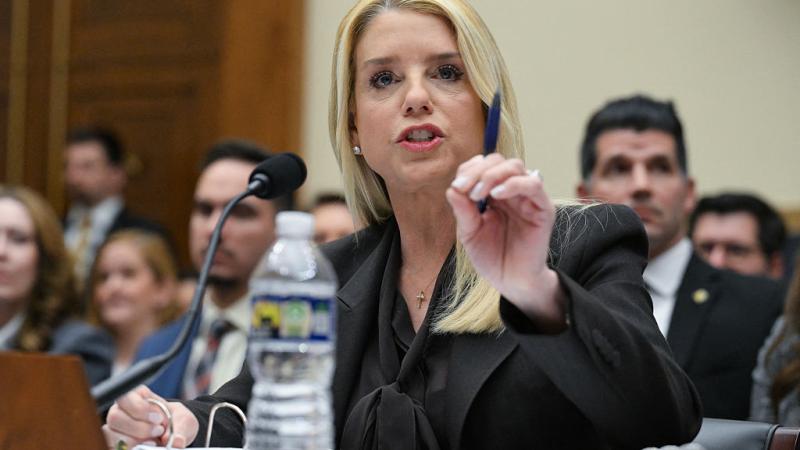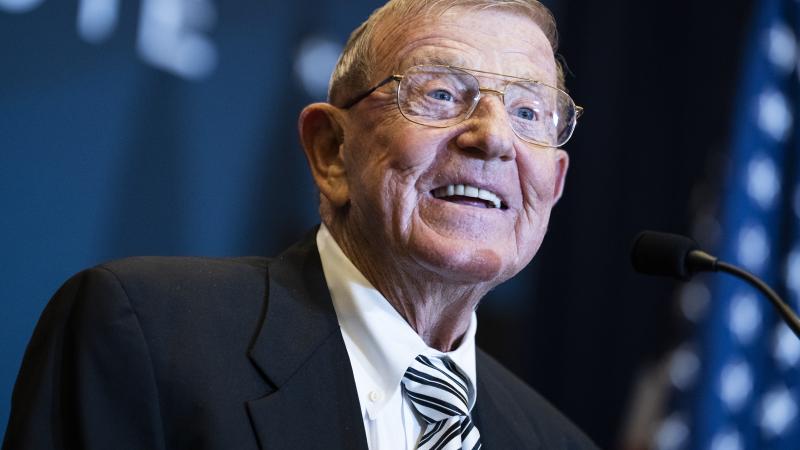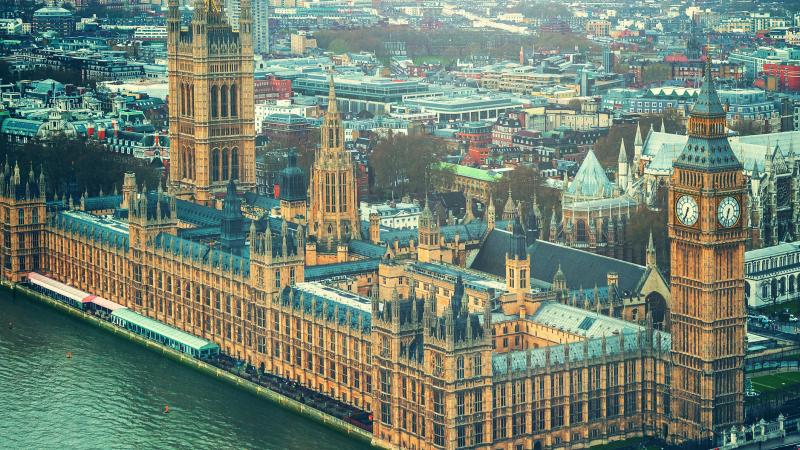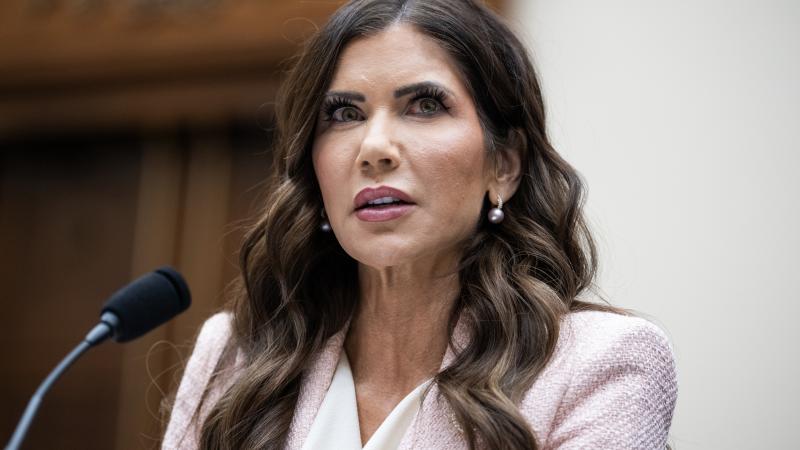Biden's inflation blame game: President insists his policies not behind high prices
With inflation soaring and Americans hurting, Democrats point finger at COVID, Putin, company greed — but not government spending, which experts say is the main cause.
With Americans feeling the economic pain of inflation, President Biden is deflecting blame for the ongoing surge in prices, insisting COVID-19, Russia, and corporate greed are the real causes.
Experts disagree, however, arguing massive government spending by Biden and Democrats is far more responsible for the inflationary struggles the country is now enduring.
"The American people think the reason for inflation is the government is spending more money," Biden told lawmakers at a retreat for House Democrats in Philadelphia on Friday. "Simply not true."
Biden argued prices are historically high right now for two reasons: COVID-19 and Russian President Vladimir Putin.
"Because of the pandemic, we've had disruptions in our supply chain materials and important materials," he said, before turning to Russia's months-long military buildup on the border and recent invasion of Ukraine.
"Make no mistake, inflation is largely the fault of Putin," Biden told House Democrats. "Democrats didn't cause this problem. Vladimir Putin did."
Rep. Kevin Brady (R-Texas), ranking member of the powerful House Ways and Means Committee, took issue with Biden's comments.
"The White House's claim that this is because of Russia is nonsense," Brady told Just the News. "They are trying to ignore last week's report showing that inflation is accelerating, and has been over the last half of a year."
Last week, the Labor Department reported that consumer prices surged by 7.9% in February compared to the same time last year. The annualized increase marked a 40-year high for the Consumer Price Index.
Much of this inflation was already in place and rising well before Russia's invasion of Ukraine and was at most only partially caused by supply chain issues due to COVID-19, according to experts who spoke to Just the News.
"Some 80% of the inflation we've seen since Biden entered the White House has been prior to the attack by Putin," said Stephen Moore, the senior economist for FreedomWorks. "This predated his invasion. We already had runaway inflation. The Ukraine crisis just made it worse."
Regarding COVID-19, Moore noted the U.S. had several months of economic growth and recovery in 2020 with former President Trump in the White House during the pandemic, and inflation was around 2%. "Where was the supply chain problem when Trump was in office?" he asked.
Dr. Douglas Holtz-Eakin, president of the American Action Forum, argued the pandemic and supply chain crisis played a partial role but nothing more. He compared the stories of inflation in the U.S. and Europe, noting the latter's prices increased steadily over the course of last year while the U.S. saw inflation increase slightly in the first quarter and skyrocket in the second quarter after passage of the American Rescue Plan, a Democrat-backed $1.9 trillion economic stimulus bill.
"If this was all COVID-19 and supply chains," he argued, the pattern between the U.S. and Europe would be more similar. "This is half from supply chain, half excessive spending."
Holtz-Eakin also explained that shelter inflation was at 1.6% last January when Biden took office and is now at 4.7%, rising every month in the interim.
"Shelter accounts for about one-third of every household budget," he said. "This has nothing to do with Ukraine or oil prices and has little to do with the global supply chain."
When it comes to inflation, the elephant in the room is the American Rescue Plan, which Biden signed into law last March.
At the Democratic retreat, Biden "thanked God" for the stimulus, describing it as legislation that saved the country from crisis.
"And it didn't cause the inflation," he added.
House Speaker Nancy Pelosi (D-Calif.) took that argument a step further.
"The government spending is doing the exact reverse, reducing the national debt," she said. "It is not inflationary."
"I don't find that argument very plausible," said Moore. "Biden's war on American energy caused oil and gas to go way up, and massive multi-trillion dollar spending" led to the inflation we're seeing.
Moore argued COVID-19 restrictions reduced the supply of goods and services, which was further hurt by the threat of higher taxes when Biden entered office. At the same time, he said, demand increased, which was bolstered by massive legislative packages that paid people not to work, thereby also causing a further reduction in supply through less people working.
Republicans have pointed the finger specifically at the American Rescue Plan.
"Just after President Biden's nearly $2 trillion COVID stimulus, inflation has raged in America for the past year, so far wiping out three years of wage gains," said Brady.
Holtz-Eakin didn't buy Biden and Pelosi's argument either, saying the American Rescue Plan was a central contributor to soaring inflation.
"I think that's wrong," he said. "Government spending has contributed a lot to inflation. They created this situation."
Last February, Lawrence Summers, who served as treasury secretary under former President Bill Clinton, warned the American Rescue Plan would overheat the economy and bring about inflation. After the bill was passed, Summers, who also served as a top economic adviser to former President Barack Obama, called the legislation "the least responsible macroeconomic policy we've had in the last 40 years."
Months after its passage, Summers continued to warn Biden to ease up on economic stimulus or risk unleashing major inflation.
Last week, Summers criticized the Biden administration for deflecting blame for inflation. Beyond COVID-19 and Russian aggression, Biden has also pointed the finger at price gouging by companies and industries that, according to the White House, have a lack of competition and contributed to price hikes. One such industry targeted by the president is meatpacking.
"The president was wrong to blame this month's number on Ukraine," said Summers. "Blaming corporate greed will chill business confidence, will reduce investment in expanding capacity, and will likely make this worse."
Regardless of who Biden is blaming, the American people seem to be holding him accountable. According to recent polling, a large majority of Americans disapprove of Biden's handling of the economy in general and inflation specifically. This trend has been evident in the polls for several months.
One likely reason for the widespread disapproval is that people are feeling the effects of high prices. Real wages — the value of wages corrected for inflation — are sinking quickly.
On paper, average hourly earnings were up 6.7% this February from the same time last year. However, wages are rising at a lower rate than prices, and real wages decreased 2.6% over the same period.
In other words, even if the number on their paycheck is higher than it was previously, Americans have less money to spend.
"What your paycheck can buy — what they call real wages — has dropped so fast this year, it is the fastest decline in the history of measuring these issues," said Brady.
However, experts noted, the blame shouldn't all fall on Biden.
The Federal Reserve "accommodated" this inflationary trend and has "blood on their hands," according to Moore. "They should be raising interest rates."
Holtz-Eakin agreed that higher interest rates are a "necessary evil."
In 2020, the Fed announced a new approach to inflation, saying it would be OK with the rate running higher than the standard 2% target as long as the average was around there. So, the Fed put its foot on the monetary gas and avoided hiking interest rates to support the labor market and broader economy.
However, inflation "tends to be like a snowball rolling down the hill" or a "venereal disease," said Moore. "Once you open the spigots, it's tough to close or control them."
"Central bankers should fear inflation," explained Holtz-Eakin. "Once it gets going, there are no easy options."

